As women age, their bodies go through a series of changes that can bring about new health concerns. Women over 50 often find themselves navigating the physical, emotional, and lifestyle adjustments that come with this stage of life. While many of these concerns are common, they are often manageable with the right information and care. Here are 15 health concerns that women over 50 worry about most.
1. Urinary Incontinence

Urinary incontinence is a common issue for women over 50, particularly after menopause. The decrease in estrogen levels can weaken the pelvic floor muscles, leading to issues with bladder control. Women often worry about the embarrassment and inconvenience of urinary incontinence, but it is treatable. Strengthening the pelvic floor muscles through Kegel exercises and seeking professional advice can help manage the condition.
In some cases, medications or medical devices may be necessary to manage incontinence. Lifestyle modifications, such as reducing caffeine intake and maintaining a healthy weight, can also alleviate symptoms. While urinary incontinence can feel distressing, it is a manageable condition, and women should feel empowered to seek help from healthcare providers. Additionally, chronic respiratory conditions like asthma can contribute to urinary incontinence due to the strain on pelvic floor muscles from chronic coughing, as noted by UCC Today. Furthermore, exposure to household air pollution has been linked to an increased risk of urinary incontinence, highlighting the importance of reducing indoor pollution for overall health.
2. Osteoporosis And Bone Health
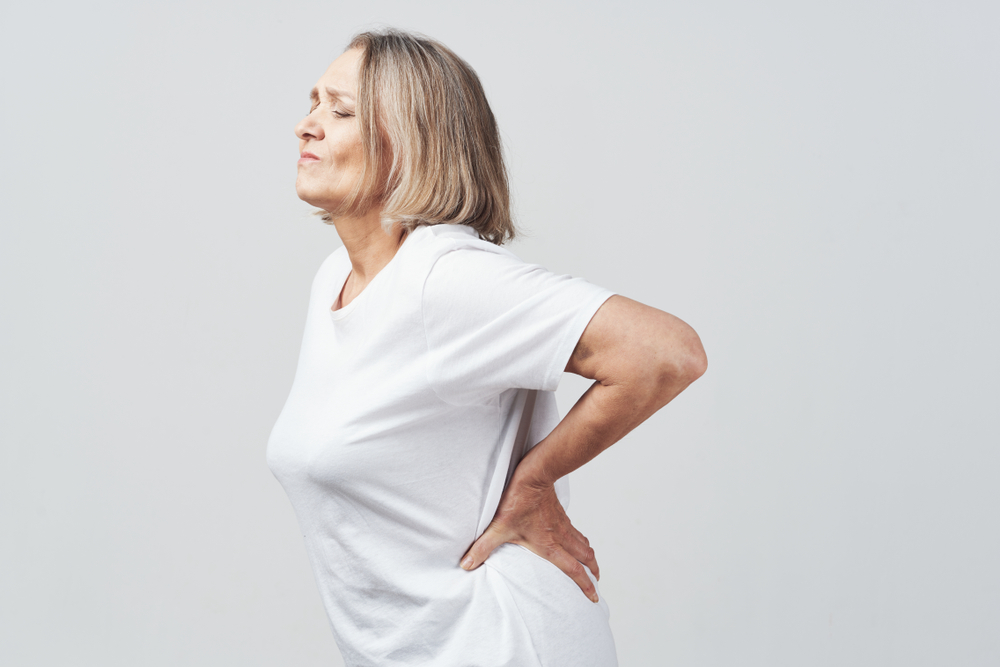
Osteoporosis becomes a significant concern for many women as they age, especially after menopause. The drop in estrogen levels during menopause contributes to the thinning of bones, which increases the risk of fractures. Women over 50 often worry about the fragility of their bones and the possibility of breaking a bone with a simple fall or accident. Regular weight-bearing exercises, adequate calcium intake, and medications can help manage this risk.
While osteoporosis is often silent until a fracture occurs, it’s important to get bone density tests and take steps to prevent bone loss. Strengthening bones through exercise, including weight training and walking, can help improve bone density. A diet rich in calcium and vitamin D, along with avoiding smoking and excessive alcohol consumption, can further protect bone health. According to Weill Cornell Medicine, women lose up to 25% of their bone mass after menopause, making early intervention crucial for maintaining bone strength.
3. Heart Disease

Heart disease remains one of the leading health concerns for women over 50. As women age, the risk of heart disease increases due to a combination of factors such as rising blood pressure, higher cholesterol levels, and changes in metabolism. Women may experience fewer obvious symptoms than men, which makes it more challenging to detect. Regular monitoring of blood pressure, cholesterol, and blood sugar levels, along with a healthy lifestyle, can help manage heart disease risk.
Adopting heart-healthy habits like exercising regularly, eating a balanced diet, and managing stress can significantly reduce the risk of heart disease. Women should also be mindful of menopause-related changes, as hormone fluctuations can contribute to an increased risk of cardiovascular problems. According to WebMD, nearly half of all deaths in women over 50 are linked to cardiovascular disease.
4. Weight Gain And Metabolism Slowdown

Many women over 50 struggle with weight gain, often due to a slowing metabolism and hormonal changes. As estrogen levels drop, it becomes easier to gain weight, especially around the abdomen. This can be frustrating and lead to concerns about maintaining a healthy weight. Regular physical activity, including strength training, and a balanced diet focused on whole foods can help boost metabolism and maintain a healthy weight.
It’s important to focus on building lean muscle mass, as muscle burns more calories than fat even at rest. Additionally, women should aim for smaller, more frequent meals to help regulate blood sugar levels. Emphasizing fiber-rich foods like fruits, vegetables, and whole grains can help with digestion and prevent overeating. Managing stress and getting adequate sleep are also crucial for maintaining a healthy weight and metabolism as women age. According to Northwest Community Healthcare, declining muscle mass is a major contributor to slower metabolism in women over 50.
5. Menopause Symptoms

For many women, menopause signals the end of their reproductive years and brings with it a host of new health concerns. Hot flashes, night sweats, mood swings, and vaginal dryness are common symptoms of menopause that can significantly impact quality of life. These symptoms may persist for several years, and managing them becomes a priority for many women over 50. Hormone replacement therapy (HRT), lifestyle changes, and alternative therapies can help alleviate the symptoms.
Women may also experience changes in their menstrual cycle before menopause, leading to heavier or irregular periods. Managing menopause symptoms requires a personalized approach, as every woman’s experience is different. It’s important to consult with a healthcare provider to explore treatment options that align with individual health needs and preferences. According to Johns Hopkins Medicine, hormone therapy can alleviate menopausal symptoms but should be used cautiously due to potential cardiovascular risks.
6. Breast Cancer

Breast cancer is a significant concern for women over 50, as the risk of developing this disease increases with age. Many women worry about the possibility of a breast cancer diagnosis, and the fear of it often heightens after menopause. Regular screenings, including mammograms, are vital for early detection, as the chances of successful treatment are much higher when the disease is caught early.
While breast cancer is a common concern, it’s essential to remember that not all lumps or changes are cancerous. Lifestyle factors such as maintaining a healthy weight, regular exercise, and a diet rich in fruits and vegetables can lower the risk. Women should also be proactive about checking for any changes in their breasts and seek professional advice if any concerns arise.
7. Joint Pain And Arthritis
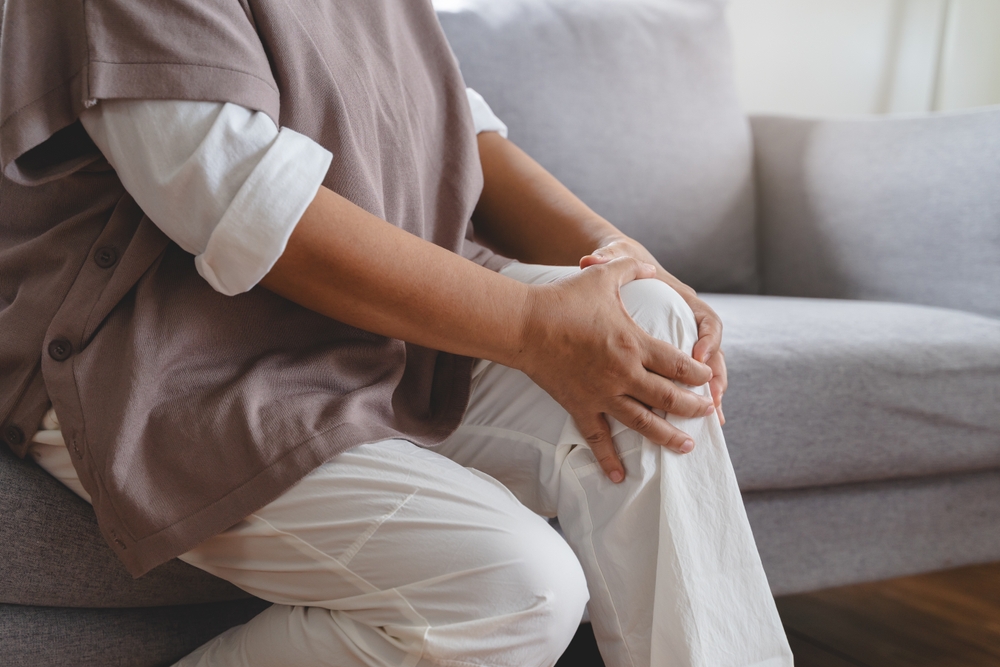
As women age, joint pain and arthritis become increasingly common concerns. Osteoarthritis, the most common form of arthritis, can cause pain, stiffness, and swelling in the joints, particularly in the knees, hips, and hands. Women over 50 often worry about the limitations that joint pain can place on their mobility and independence. Regular physical activity, weight management, and physical therapy can help reduce symptoms and maintain joint function.
In some cases, medications or joint injections may be necessary to manage arthritis pain. Dietary changes, including anti-inflammatory foods like omega-3-rich fish, may also offer relief. Women who experience joint pain should prioritize maintaining a healthy weight, as excess weight can exacerbate joint stress. Working with a healthcare provider to create an individualized management plan can help minimize the impact of arthritis on daily life.
8. Vision Problems

Many women over 50 experience changes in their vision, such as presbyopia (difficulty focusing on close objects), dry eyes, and an increased risk of conditions like cataracts and macular degeneration. These age-related changes can lead to concerns about losing independence and the ability to perform daily tasks. Regular eye exams are important for detecting and managing these conditions early on. Corrective lenses, medications, or even surgery may be necessary to maintain good vision.
To promote eye health, women should protect their eyes from excessive sun exposure, eat a diet rich in vitamins A and C, and manage conditions like diabetes that can affect vision. Taking regular breaks from screens and practicing eye exercises can also reduce eye strain. With proper care and attention, many vision problems can be managed effectively, allowing women to maintain their independence.
9. Cognitive Decline And Dementia

As women age, concerns about cognitive decline, memory loss, and dementia become more prominent. Alzheimer’s disease, the most common form of dementia, affects a higher percentage of women than men. The fear of losing cognitive function and independence can be overwhelming. Maintaining mental health through regular cognitive exercises, social engagement, and a healthy lifestyle can help reduce the risk of dementia.
Research suggests that staying mentally active through reading, puzzles, or learning new skills can promote brain health. Proper nutrition, including antioxidants and omega-3 fatty acids, can also support cognitive function. Women should be aware of the early signs of cognitive decline and seek professional evaluation if they notice memory loss or difficulty with daily tasks.
10. Skin Changes
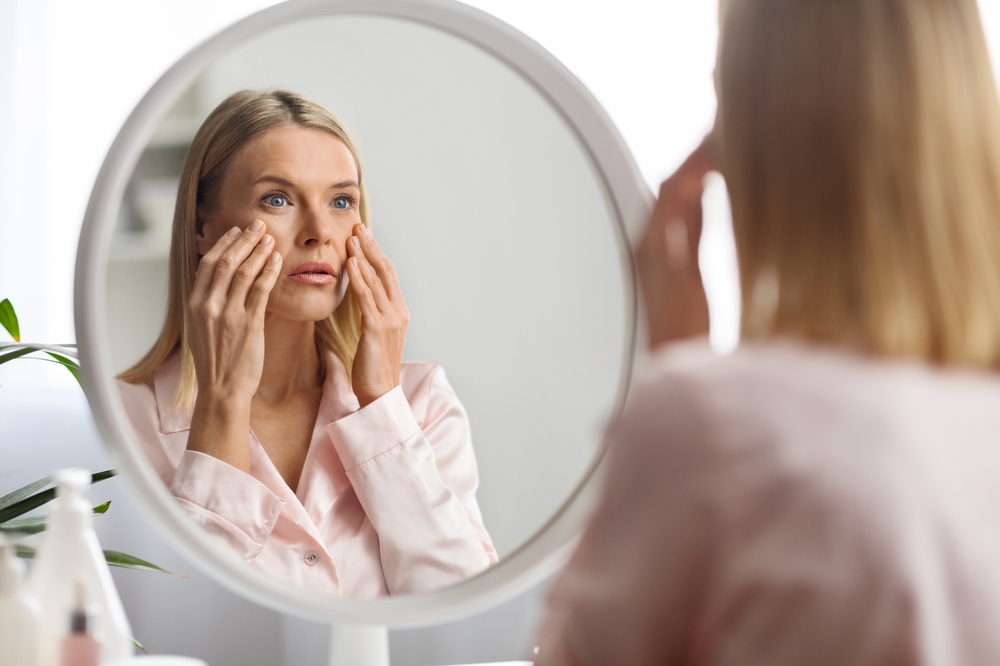
As women age, their skin undergoes significant changes, including wrinkles, age spots, and thinning. These changes can lead to concerns about aging and the visible effects of time. Many women over 50 worry about maintaining youthful, healthy skin as they age. Proper skincare, including moisturizing, sun protection, and using products with retinol or vitamin C, can help improve skin health and appearance.
In addition to skincare, a healthy diet rich in antioxidants and staying hydrated can help maintain skin elasticity and prevent dryness. It’s also important to check for any unusual changes in the skin, such as new moles or growths, as these could indicate skin cancer. While skin changes are inevitable with age, proactive care can help minimize their impact and keep skin looking healthy.
11. Sleep Disturbances
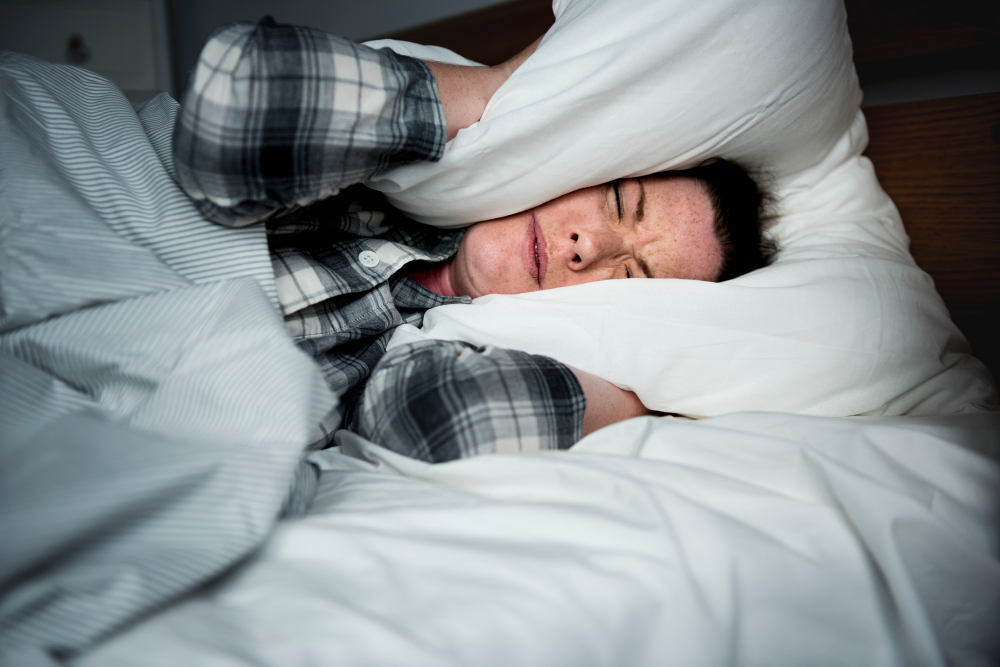
Sleep disturbances are common among women over 50, especially during and after menopause. Hot flashes, night sweats, and anxiety can disrupt sleep patterns, leading to fatigue and irritability. These sleep problems can significantly impact overall health and well-being. Women should focus on creating a sleep-friendly environment, practice relaxation techniques before bed, and maintain a consistent sleep schedule.
In some cases, seeking professional advice on managing menopause symptoms or sleep disorders may be necessary. Cognitive behavioral therapy for insomnia (CBT-I) and other therapeutic approaches can also help address sleep issues. Reducing caffeine intake and limiting screen time before bed are additional strategies that can improve sleep quality. Taking steps to manage sleep disturbances can help women maintain energy and quality of life.
12. Diabetes

Diabetes is a growing concern for women over 50, as the risk increases with age. Type 2 diabetes, in particular, is more common among women who are overweight, inactive, or have a family history of the disease. Managing blood sugar levels is essential to prevent complications like heart disease, nerve damage, and kidney problems. A balanced diet, regular exercise, and maintaining a healthy weight are key factors in preventing and managing diabetes.
Women should also be aware of the symptoms of diabetes, such as increased thirst, frequent urination, and unexplained weight loss. Regular blood sugar monitoring and annual check-ups can help detect the disease early. By making lifestyle changes and managing their health, women can reduce the risk of developing diabetes or minimize its impact if they already have it.
13. Mental Health And Depression

Mental health concerns, including depression and anxiety, are common among women over 50, particularly as they deal with the challenges of aging. The hormonal changes that occur during menopause, as well as life events such as retirement or empty nesting, can contribute to feelings of sadness and loneliness. It’s important to recognize the signs of depression and seek help if needed. Therapy, medication, and lifestyle changes can all contribute to improving mental health.
Women should make self-care a priority by maintaining social connections, staying active, and engaging in activities that bring joy. Reducing stress through mindfulness, yoga, or meditation can also help promote emotional well-being. Mental health is just as important as physical health, and seeking support is a vital step in ensuring a fulfilling life as women age.
14. Sexual Health And Libido

As women age, they may experience changes in sexual health, including a decrease in libido, vaginal dryness, and discomfort during intercourse. These changes are often related to hormonal fluctuations during menopause. Many women worry about the impact of these changes on their relationships and overall sexual health. Lubricants, vaginal estrogen creams, and open communication with a partner can help address these issues and improve sexual health.
It’s important for women to feel comfortable discussing sexual health with their healthcare provider, as there are many treatments and solutions available. Maintaining a healthy lifestyle, including regular exercise and a balanced diet, can also help boost libido. Taking a holistic approach to sexual health can help women feel more confident and comfortable with their bodies during this stage of life.
15. Hearing Loss
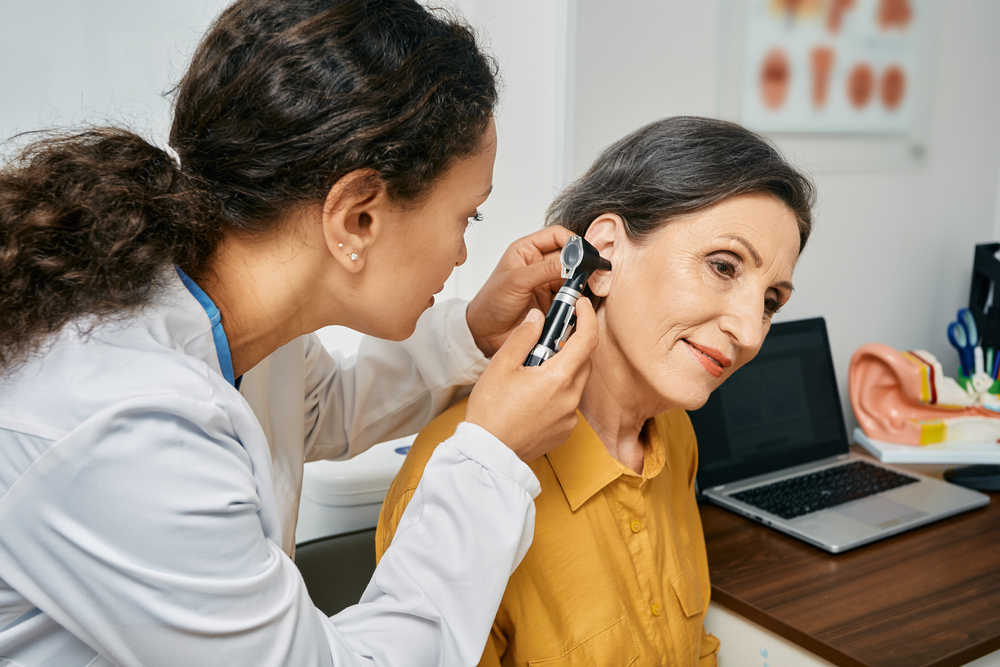
Hearing loss is another concern for many women over 50, as it can gradually occur due to aging or prolonged exposure to loud noise. The early signs of hearing loss, such as difficulty hearing conversations or the need for the television volume to be higher, can be frustrating. Women may worry about the impact of hearing loss on communication and their social lives. Regular hearing tests can help detect any changes in hearing, and hearing aids can significantly improve quality of life.
Taking steps to protect hearing, such as avoiding loud environments and wearing ear protection, can help prevent further damage. Hearing loss doesn’t have to be a barrier to enjoying life—there are many tools and resources available to help. Early intervention is key to managing hearing health effectively and maintaining social connections as women age.

Abisola is a communication specialist with a background in language studies and project management. She believes in the power of words to effectively connect with her audience and address their needs. With her strong foundation in both language and project management, she crafts messages that are not only clear and engaging but also aligned with strategic goals. Whether through content creation, storytelling, or communication planning, Abisola uses her expertise to ensure that her messages resonate and deliver lasting value to her audience.


